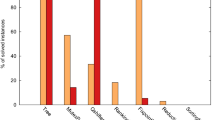
Overview
Access this book
Tax calculation will be finalised at checkout
Other ways to access
About this book
Functional decomposition has emerged as an essential technique in automatic logic synthesis for FPGAs. Functional decomposition as a technique to find realizations for Boolean functions was already introduced in the late fifties and early sixties by Ashenhurst, Curtis, Roth and Karp. In recent years, however, it has attracted a great deal of renewed attention, for several reasons. First, it is especially well suited for the synthesis of lookup-table based FPGAs. Also, the increased capacities of today's computers as well as the development of new methods have made the method applicable to larger-scale problems. Modern techniques for functional decomposition profit from the success of Reduced Ordered Binary Decision Diagrams (ROBDDs), data structures that provide compact representations for many Boolean functions occurring in practical applications. We have now seen the development of algorithms for functional decomposition which work directly based on ROBDDs, so that the decomposition algorithm works based on compact representations and not on function tables or decomposition matrices as in previous approaches.
The book presents, in a consistent manner, a comprehensive presentation of a multitude of results stemming from the author's as well as various researchers' work in the field. Apart from the basic method, it also covers functional decomposition for incompletely specified functions, decomposition for multi-output functions and non-disjoint decomposition.
Functional Decomposition with Application to FPGA Synthesis will be of interest both to researchers and advanced students in logic synthesis, VLSI CAD, and Design Automation as well as professionals working in FPGA design and the developmentof algorithms for FPGA synthesis.
Similar content being viewed by others
Keywords
Table of contents (7 chapters)
-
Front Matter
-
Back Matter
Reviews
Zentral Blatt Mathematik, 989 (2002)
Authors and Affiliations
Bibliographic Information
Book Title: Functional Decomposition with Applications to FPGA Synthesis
Authors: Christoph Scholl
DOI: https://doi.org/10.1007/978-1-4757-3393-8
Publisher: Springer New York, NY
-
eBook Packages: Springer Book Archive
Copyright Information: Springer Science+Business Media Dordrecht 2001
Hardcover ISBN: 978-0-7923-7585-2Published: 31 October 2001
Softcover ISBN: 978-1-4419-4929-5Published: 03 December 2010
eBook ISBN: 978-1-4757-3393-8Published: 09 March 2013
Edition Number: 1
Number of Pages: XXIV, 264
Topics: Circuits and Systems, Electrical Engineering, Computer-Aided Engineering (CAD, CAE) and Design, Symbolic and Algebraic Manipulation, Theory of Computation



